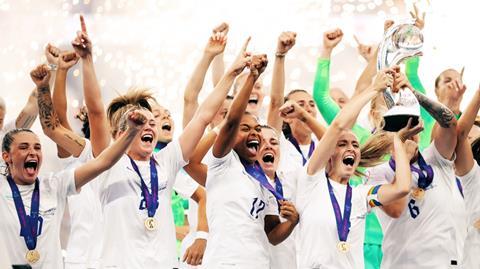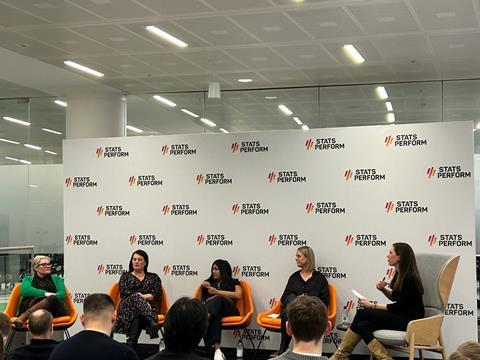Anna Thompson, women’s sport lead for BBC Sport, points to the importance of free-to-air for growing audiences

BBC Sport women’s sport lead Anna Thompson has pointed to the importance of free-to-air streaming for the growth of women’s sport.
Thompson was speaking at Stats Perform’s Embracing Equity In Sport event, held ahead of International Women’s Day, which featured a group of female leaders in sport speaking about the growth and challenges for women in the industry. She spoke alongside England Rugby women’s game director Alex Teesdale, DAZN VP of production and editorial operations Louise Lawler, and Upshot founder and CEO Preeti Shetty.
Thompson said: “Streaming has been a massive game changer for women’s sport. From a BBC perspective, we have two major network channels, we have BBC3 etc. as well, but there’s always massive competition for what goes on those channels. There’s a cost per view that they look at.
“For a lot of women’s sports, when they’re developing and trying to grow that fanbase, the fact that we can stream lots of events on iPlayer and the BBC Sport website – that’s been a massive change.
“I see quite often people will quote that 17.4 million people tuned into watch the Lionesses win the Euros on BBC1, but actually six million additional people accessed that by iPlayer and the BBC Sport website. It’s recognising the changing way that audiences are getting their sport.

“To be able to watch sport that you can access easily, that’s big for women’s sport.”
Women’s sport viewing was up 131% in 2022, and Thompson believes that, for now, free-to-air access is vital to continuing growth: “It’s a chicken and egg situation. The WSL, for example, BT used to show live matches and the BBC had it on the Red Button. Because of the success at various international competitions, it meant that more people were interested in the WSL. The FA at the time, with the rights deal, they knew that to get a lot of money, they needed it from Sky, but if they wanted to get the reach they needed to go to the BBC – so they did a joint deal.
“That’s what we’re trying to replicate as best we can for other sports. We do the Women’s Six Nations, Premier 15s, tennis with Wimbledon etc. We have identified that, and I can only see the rights fees going up and up and up, that it’s still at that point where you need to get the audience base. You can’t just throw a sport out there and expect people to watch it.
She added: “At one point it will get to a tipping point where a lot of big organisations and rights holders may go for the biggest figure all the time, but if it’s not on FTA there can be issues. For example, cricket, I’m not having a go at Sky who have done it tremendously well for 20 years, but cricket found there’s a whole generation who don’t know what cricket is. So it was how they could do something we could show – which is how The Hundred came about. It’s that fine balancing act between getting people to watch a sport, but also needing money from the rights fees to develop a sport.”







No comments yet